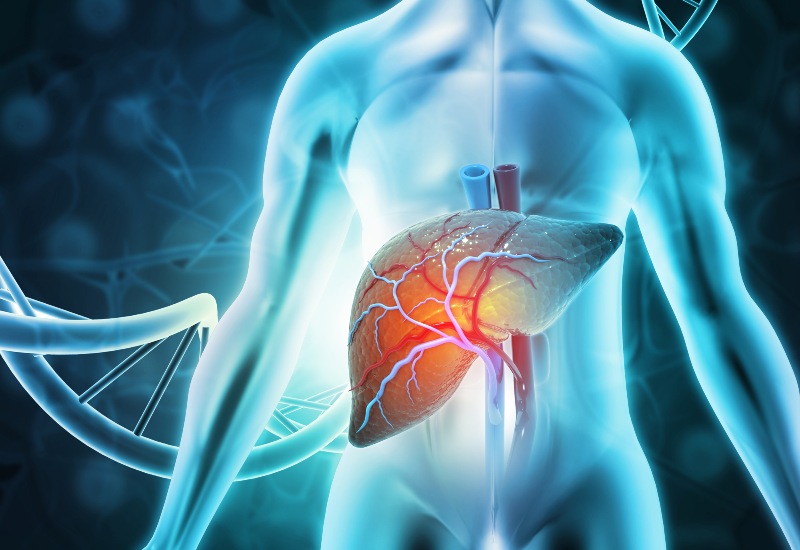Is in Your Liver: Fat or Scars
Your liver is the largest solid organ in your body, but how much do you know about it? Where is your liver? What does the liver do? No matter your lifestyle or stage of life, it pays to know a little bit about the liver, liver function, and how to maintain your liver health.

Here’s What You Need to Know About the Liver and Its Functions
The liver is located in the right upper abdomen, behind the rib cage. It is an important organ because the main function of the liver is to filter all of the blood in the body and remove toxins from the blood supply. It also maintains healthy blood sugar levels, regulates blood clotting, and much more. In all, the liver performs over 500 vital functions, making it an essential organ of the body. Some of the most important functions include the production of bile, as well as albumin, a protein that carries hormones, vitamins, and enzymes through the body while preventing fluids from leaking from the bloodstream into the surrounding tissue. The liver also filters the blood, regulates amino acid levels in the bloodstream, regulates blood clotting, helps your body resist infections, stores vitamins and minerals, and processes glucose. All of this happens in a reddish brown, cone shaped organ that weighs about three pounds and is located below the lungs in the right upper abdomen.
Key Facts About the Liver
- It is responsible for breaking down poisonous substances like drugs and alcohol.
- The liver consists of four lobes, each made of eight sections and thousands of small lobes, called lobules.
- Bile is produced in the liver, to help digest fats and carry away waste
Maintaining a Healthy Liver Means Sustaining a Healthy Lifestyle.
To keep the liver functioning as it should, you must support it with a nutritious diet, avoiding excessive fats, which can lead to fatty liver disease. Avoid illicit drugs and drink alcohol only moderately; the liver works hard to filter toxins out of the body and can be overwhelmed and damaged when it has to break down too many toxic substances. Stay vaccinated against liver-related diseases like hepatitis A and B, malaria, and yellow fever. Exercise regularly to promote liver health as well as overall health, and practice safe sex to avoid sexually transmitted diseases that can impact the liver.
The Liver Fibroscan® Uses Innovative Technology to Examine the Liver.
Your doctor may be concerned about your liver if you have a chronic liver condition like hepatitis B or C, alcoholic liver disease, non-alcoholic steatohepatitis, or a genetic disease like hemochromatosis or Wilson’s disease. These conditions can cause scarring in your liver, known as fibrosis, which can grow severe and become cirrhosis, a serious and sometimes fatal condition. Fat in your liver is a concern, as well, so your doctor will want to know if there is fat or fibrosis in your liver. Traditionally, the way to determine this was through a painful and expensive procedure called a liver biopsy. With the Liver FibroScan®, the same information can be gathered through a simple, non-invasive, painless test that takes about five minutes and provides immediate results.
What Is in Your Liver: Fat or Scars?
Fatty accumulation in the liver cells is known as steatosis. Many people have fat in their liver, and in the early stages, it is not a serious problem. When it builds up in your liver, it causes fatty liver disease, which can be classified as alcoholic or non-alcoholic. Simple fatty liver does not typically damage the liver, but the alcoholic fatty liver disease can lead to alcoholic hepatitis and cirrhosis. Neither alcoholic nor non-alcoholic fatty delivery disease are likely to cause symptoms other than fatigue or discomfort in the abdomen. It is only through testing that a doctor can determine whether your liver has fat or scars, and this is vital in developing a treatment plan.
Why Choose Complete Cardiology Care?
Your heart is the life source of your body, and when you need help protecting and maintaining the health of your heart, Complete Cardiology Care is here for you. In our Sugar Land, Texas office, you will find an experienced cardiologist and nurse practitioner dedicated to helping patients find solutions to any cardiac issues they may be facing. Our practice lives up to its name by offering a complete list of cardiology services, delivered by our team of medical professionals whose careers are focused on helping people improve their heart health. Using advanced technology and state-of-the-art equipment, we offer comprehensive healthcare for conditions including heart disease, coronary artery disease, peripheral vascular disease, varicose veins, heart rhythm disorders, high blood pressure, and high cholesterol. When you need a cardiologist who will provide you with personalized treatment and advanced cardiac care, trust Dr. Sonbol and the experienced, highly trained team at Complete Cardiology Care. Call us at 281-617-2483 or schedule an appointment through our website.
